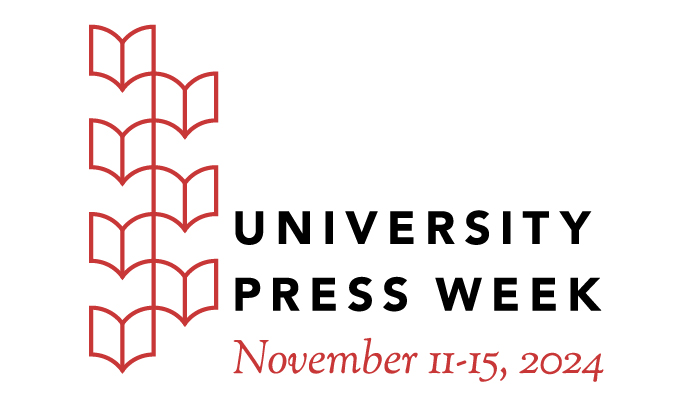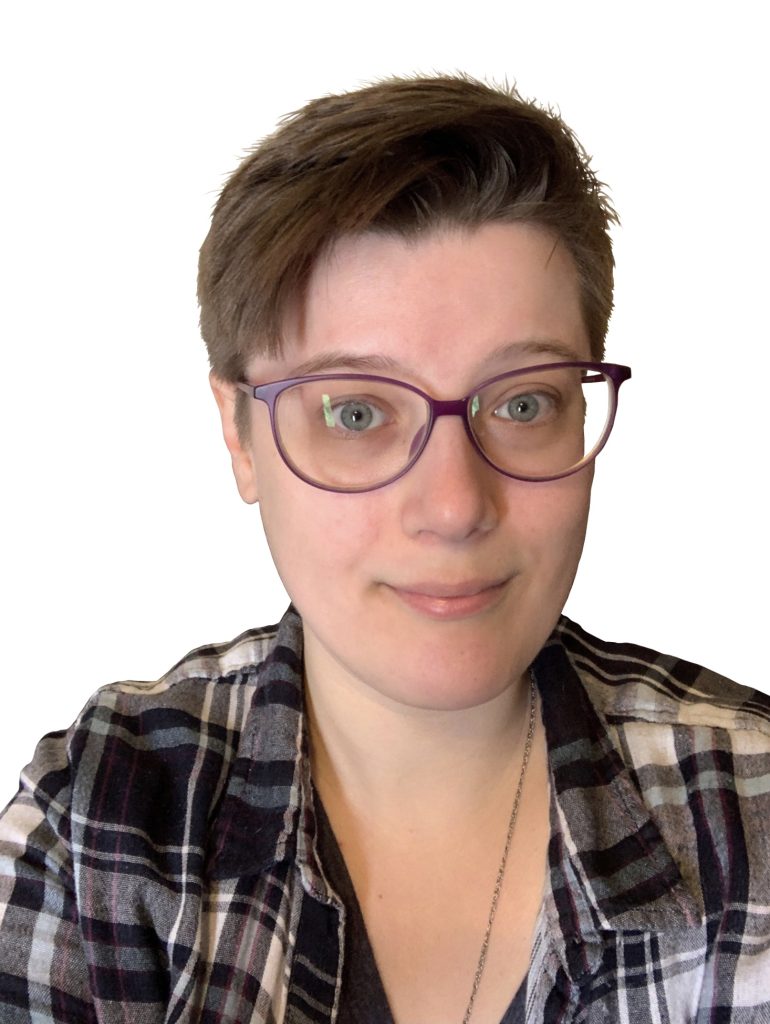Every day, university presses worldwide step up to educate and enlighten, motivate and inspire, support and act.
During University Press Week 2024, we explore the myriad ways our community’s publications and platforms give context to current issues and events, offer solutions to global challenges, and present diverse voices in a broad range of disciplines. It’s not hard to see how the work of these mission-driven publishers helps all to stride forward with purpose.
This week, the University of Illinois Press (UIP) is highlighting exciting content, projects, and initiatives from our journals and books departments that allow our us and our authors to #StepUP. Make sure to check out blog posts from other university presses in the Association of University Presses’ (AUP) UP Week blog tour and browse the #StepUP gallery and reading list here.
Please allow us to introduce you to assistant acquisitions editor Leigh Ann Cowan, who is responsible for acquiring titles in Appalachian Studies. Below is an interview with Leigh Ann, wherein she elaborates on how she chose academic publishing and what she wishes authors knew about her job.
Q: How long have you been at Illinois Press and how did you get into academic publishing?
My journey into the publishing world started in the summer of 2019, when I had the opportunity to attend the Denver Publishing Institute (DPI), which hosted guest presenters and lecturers from a variety of presses, from children’s literature to academic publishing. I found myself most drawn to academic presses.
From DPI, I interned and then worked as an editorial assistant at Gallaudet University Press (GUP), where I had the benefit of working hands-on across departments and learning the process of manuscript to book. GUP is a small, niche press that focuses on topics related to deafness, deaf people, and deaf cultures. Eventually, I began to yearn for a larger Press with a wider range of subject areas.
When I learned Illinois was hiring, I immediately submitted an application. The catalogs are always full of fascinating titles, and I was especially drawn to how intersectional these lists are. I started at Illinois Press in September 2022 as assistant acquisitions editor to Dominique Moore and Alison Syring. (How time flies!)
Q: What types of projects are you really excited about acquiring right now?
Our current Appalachian Studies list features many titles that intersect with labor and music. I want to expand into areas that have been too little studied: disability studies, Black and Indigenous studies, as well as other race/ethnic studies, and queer studies. These topics are growing and abound with potential, so I’m really excited to acquire these types of projects.
That said, I’m acutely aware that there is so much more than these fields out there, and they can all intersect with one another in myriad ways. You never know what interesting topics people are working on, and I constantly find myself surprised by the new things I learn.
Q: What do you wish potential authors knew about your job or publishing?
Speaking candidly, I wish more authors realized that I (and each of my colleagues) am but one cog in the machine.
Sometimes an author might grow impatient or frustrated that things aren’t moving as quickly as they hoped/expected, which is totally understandable. But I (personally) cannot work miracles. When a reviewer report is late, for example, I can’t pack a bag and fly out to the reviewer’s institution, knock on the office door, and demand their report.
Delays happen! That is completely normal, as frustrating as it is. The publishing industry is, perhaps, like an airport in this way. (And don’t call me Shirley.) There’s a lot happening behind the scenes. Not getting responses and materials on an expedited timeline is not indicative of the quality of the author’s work or a suggestion that the Press lacks enthusiasm for the project.
Q: Of the many projects you’ve been involved with at the Illinois Press, do you have any favorites or any that are most memorable?
I started getting involved in transmitting acquired projects into production in the late fall of 2022 and early spring 2023, so I’m just now starting to see these projects appearing, which is incredibly exciting. The very first project I helped transmit was Cristina M. Rosetti’s biography of Joseph White Musser. One of my favorite projects to work on was AnneMarie Mingo’s Have You Got Good Religion? When working on pre-production tasks, I found myself engrossed in reading the manuscript instead of checking that the call-outs were there!
Q: How would you describe the current role and mission of the university press community?
First and foremost, university presses should cultivate and disseminate works that broaden, build upon, and generate conversations around knowledges. If that sounds vague, it’s because I tend to define these things more loosely.
The scholarly community is growing, and more attention is being rightfully given to scholars and their works that don’t strictly adhere to traditional (dare I say outdated?) scholarly parameters (e.g., relying on jargon, or presenting the researcher as an impartial nonentity). People who have important and meaningful knowledges to contribute can and do come from anywhere; part of the university press’s duty is to pick up on these potentials and consider how they might lead, be[come] part of, or shift directions in the conversation.
Q: In your view, what defines the type of books that UIP publishes? What sets UIP apart from the other presses within the AUP community?
We publish primarily in the humanities and social sciences, but one of the strongest aspects of UI Press’s titles is the intersectionality of fields and theories. A project in our Appalachian studies list can also critically engage music, Black studies, and/or labor studies, for example.
Q: What do you do in your spare time (if you have any)?
Surprise, surprise: I read. Pretty much whatever I can get my hands on, both fiction and nonfiction. I recently went through a fairy tale hyperfixation, where I read tons of tales and literary/sociocultural analyses of these. A lot of my time goes towards reading fiction featuring deaf characters, which I blog about. Almost all other spare time is devoted to preventing my cat Tigger from eating plastic, licking the straw of my tumbler cup, and turning his water fountains upside-down. He’s adorable.


